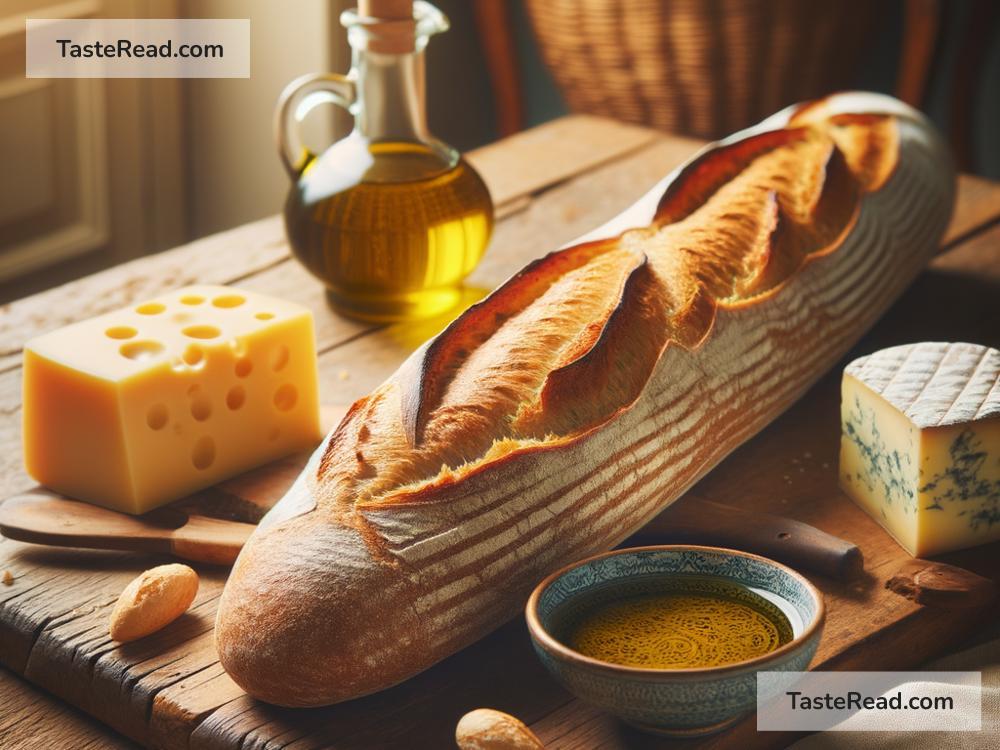The Timeless Charm of the French Baguette: A Journey Through Its Legacy
When you think of France, what’s the first thing that pops into your mind? Is it the Eiffel Tower, the romantic ambiance of Parisian streets, or the fascinating array of fashion? For many, the iconic French baguette steals the spotlight. This simple yet remarkable bread has become a symbol of French culture and culinary expertise around the globe. But what is it about the baguette that has captured the hearts of people worldwide? Let’s delve into the legacy of the French baguette and explore its enduring allure.
The Birth of the Baguette
The origins of the baguette are somewhat shrouded in mystery and legend. While it’s challenging to pinpoint exactly when the first baguette was baked, it is believed that its lineage traces back to the 18th century. Some stories suggest that the baguette was born out of a law that prohibited bakers from starting their work before 4 a.m., making it difficult to bake traditional round loaves in time for breakfast. This led to the creation of a thinner, longer loaf that could be prepared more quickly. Regardless of its true origin, the baguette soon became a staple in French cuisine.
A Cultural Emblem
The French baguette is much more than just a type of bread. It embodies the essence of French daily life and tradition. Walking through the streets of any French town or city in the morning, you are likely to see locals carrying not one but several baguettes under their arms, a testament to its integral role in daily French life. The French government even recognizes the cultural significance of the baguette, with regulations in place regarding its composition and the methods used in its baking.
What makes the French baguette stand out is its simple elegance. Made with only four ingredients — flour, water, yeast, and salt — its beauty lies in its simplicity. When baked to perfection, it boasts a crispy golden crust and a soft, airy interior, creating a balance of textures that dance on the palate.
The Art of Baguette Making
Baking a baguette is considered an art form in France, with bakers honing their skills over many years to achieve the perfect loaf. The process involves precise measurements, timing, and a deep understanding of how different factors, such as humidity and temperature, can affect the dough. It’s this dedication to craftsmanship that has helped maintain the baguette’s reputation for excellence.
Every year, France holds a competition to crown the “Best Baguette in Paris.” Bakers from all over the city submit their loaves to be judged by a panel of experts on criteria including taste, texture, and appearance. Winning the title is one of the highest honors a baker can achieve, highlighting the competitive and revered nature of baguette-making in French culture.
The Baguette Today
Despite the ever-changing food landscape, the baguette has stood the test of time, continuing to be a beloved choice for sandwiches, accompaniment for meals, or simply enjoyed on its own with a slather of butter. It has also inspired variations and adaptations in bakeries around the world. Yet, the traditional French baguette remains unmatched in its appeal.
Recently, the French baguette was even proposed for UNESCO’s Intangible Cultural Heritage list, a testament to its global significance and the widespread desire to preserve its legacy for future generations. This move underscores the baguette’s status not just as a culinary delight, but as an emblem of French heritage and identity.
Conclusion
The French baguette, with its golden crust, soft interior, and delectable simplicity, is more than just bread. It is a symbol of French ingenuity, tradition, and the enduring appeal of a well-made loaf. Whether it’s being savored in a cozy Parisian café or baked thousands of miles away from France, the baguette continues to be a beloved icon of culinary art. Its legacy, deeply rooted in French culture, invites us to appreciate the beauty of simplicity and the universal language of good food. Next time you bite into a crunchy, warm baguette, remember the centuries of history and passion baked into each loaf, and let it transport you to the heart of France, no passport required.


